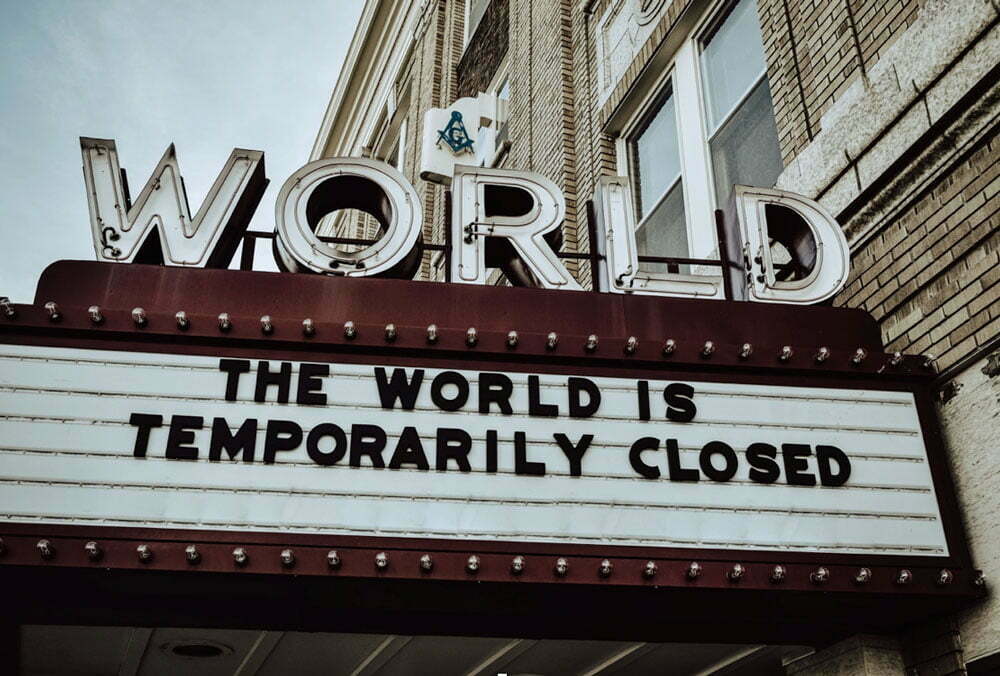
Are you feeling more exhausted, overwhelmed, anxious, or down than usual? Maybe you find that you are irritable, angry, withdrawn, or bored. You are not alone.
We are living through a disaster, both natural and human-caused. I speak not only of COVID-19 but of the mental and physical health issues associated with the ‘new normal’ distancing measures. There is no doubt that the measures taken have saved lives. However, there are consequences to staying at home and away from people outside our household as much as possible. For some of us this means there may be no division between work and a personal life, for others it means lack of exercise, poor diet, or substance overuse. There is a feeling of being disconnected from the outside world.
In the U.S. Department of Health and Human Services Training Manual for Mental Health and Human Service Workers in Major Disasters, Deborah Dewolfe (2000) describes three phases of disaster, after impact and before recovery:
- Heroic Phase – Here we focus on survival and safety of ourselves and others. This is when we get that rush of adrenaline to act fast.
- Honeymoon Phase – In this phase, we work together as a community for the greater good. There is optimism that all will return to normal.
- Disillusionment Phase – Reality sets in as we realize what has been lost. The continuing stress takes its toll on our mental and physical wellbeing and causes fatigue. In our case the risk is exacerbated by each new wave of the pandemic.
The fatigue that follows from the disillusionment phase may result in us being very easily triggered emotionally or numbing our emotions. Some people may not be able to sleep while others want to sleep all the time. Some may begin to become complacent to the suggested measures to control the virus.
So, what can we do to minimize the effects of this pandemic/crisis fatigue? In an article on crisis fatigue for WebMD Health News, Katherine Kam (2020) refers to the advice of Arianna Galligher, associate director of Ohio State University’s Stress, Trauma and Resilience (STAR) Program and Karestan Koenen, PhD, professor of psychiatric epidemiology at the Harvard T.H. Chan School of Public Health:
- Spend your energy intentionally
- Pursue things that give you joy and hope
- Take breaks, take care
- Pick your battles wisely
- Take a break from the news
- Seek support
- Remember that we’ll come out on the other side
In addition to the above, I would add the following suggestions. These often form part of the behavioral activation therapy that I utilize with my clients. Behavioral activation is a part of Cognitive Behavioral Therapy (CBT) that emphasizes a shift in behavior in daily life toward those activities that increase positive reinforcement. It has been proven that doing these types of activities improves mental wellbeing (Sturmey, 2009).
- Exercise – Go for a walk, do a bit of yoga, or just climb some stairs rather than taking an elevator. Your body should feel more relaxed afterward and endorphins may improve your mood.
- Socialize – Chat to a friend or join a colleague for lunch. We are social creatures and need to feel connected to one another in this time of masks and social distancing.
- Laugh – Watch a funny movie, reruns of your favorite sitcom, or a silly online video. Just the act of smiling can make you feel happier.
- Learn something new – Take up a musical instrument, read a nonfiction book, or cook something you have never cooked before. This provides a positive distraction from everyday worries and can impart a sense of accomplishment.
If you have tried the above and nothing seems to be working or you are experiencing significant difficulty with relationships, at work, or in everyday functioning, contact a therapist for help. The Samaritans Hong Kong operate a 24 hour multilingual suicide prevention hotline at 28960000 or call 999 if you feel you may need immediate assistance.
References:
DeWolfe, D. J., (2000). Training manual for mental health and human service workers in major disasters (2nd ed.). Rockville, MD: U.S. Department of Health and Human Services, Substance Abuse and Mental Health Services Administration, Center for Mental Health Services.
Kam, K. (2020, July 21). Crisis Fatigue: Are We Emotionally Overwhelmed? Retrieved October 15, 2020, from https://www.webmd.com/lung/news/20200721/crisis-fatigue-are-we-emotionally-overwhelmed
Sturmey, P. (2009). Behavioral activation is an evidence-based treatment for depression. Behavior Modification, 33, 818-829.

